Matt Moore's Blog
June 25, 2024
What inspired me to write “Below The Surface, We Can Only Imagine” in Horror Over the Handlebars
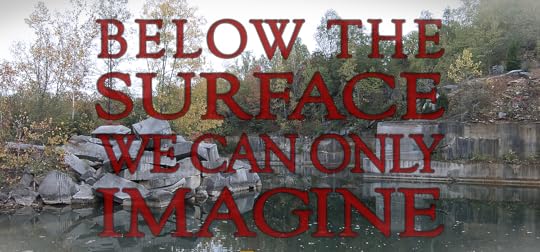
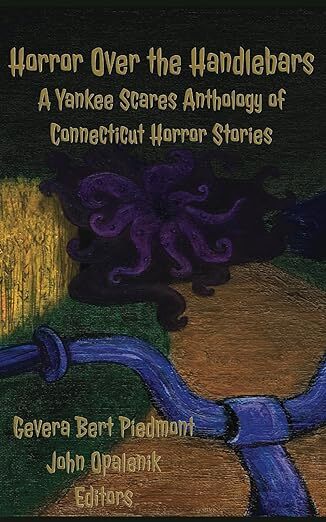
I have a short story in the recently released anthology Horror Over the Handlebars: A Yankee Scares Connecticut Horror Anthology. It’s a collection of horror stories set in the 80s and 90s in my home state of Connecticut.
It’s available on Amazon in trade paperback and Kindle (and on amazon.ca for my Canadian friends). You can also read an interview with me on the publisher’s website and find the other authors’ interviews.
My story, “Below The Surface, We Can Only Imagine”, is set in a forgotten, flooded quarry turned swimming hole for local kids. As a hot summer where five people have drowned in the quarries draws to an end, three friends sneak in a swim before going their separate ways—two to college and one to finish high school. This is in the 80s, before cell phones and email, and they wonder if they will remain friends. Except one reveals a secret he’s been keeping all summer. A secret about their fourth friend who drowned. A secret tied to a local town legend about why the quarries were abandoned and lost.
The R.E.M. song “Nightswimming” off Automatic for the People inspired this song. (Video of the song is below.)
I find something uplifting but also melancholy about it. And something sinister. After lyrics about swimming, friendship and reminiscing we get:
You, I thought I knew you
You, I cannot judge
You, I thought you knew me
This one laughing quietly underneath my breath
To me, this reveals something dark. Perhaps the idea that we don’t know our friends as well as we thought, but despite what they may have done we love them and can’t judge them despite another friend laughing quietly and menacingly. This changes the opening and closing line:
Nightswimming deserves a quiet night
In the openings, it’s about being calm and peaceful with your friends in a dark, out of the way place. In the closing, is in quiet regret? Is it that something terrible is happening that isn’t quiet but you wish it were?
I decided I wanted to write about it. I borrowed a lot of elements from the song: swimming at night, the moon, a friend’s low laugh, regret, streetlights (though that didn’t make the final cut). In fact, the original opening line was:
September’s coming soon
Most of all, the power of friendship when you’re young, how we change as we grow up, and how well do we really know our friends and ourselves?
Free will is also front-and-center here. A critique of horror (and, as it were, of this story by someone who admitted they hate, but don’t understand, horror) is “The devil made me do it” is a cop-out that releases antagonists from accountability. A theme I wanted to explore—and then blatantly put into the narration to make sure it isn’t missed as I was smarting from the critique—is that the devil (or any corrupting force) can’t make you do something evil. You choose to do the evil thing; the devil just offers you the tools to do it. Christianity would have you believe the devil seeks pure souls to corrupt. I think the devil reveals who you really are.
The first draft of the story clocked in around 15,000 words, written mostly in a burst during a train ride to Toronto. The ending of the current story was the end of the first act. The main character has his night swimming in the quarry, goes on to live his life, and reencounters his friends in his 30s where he learns what is revealed in the final version of the story. I might revisit that one day, but for now I love this version that takes place over about 20 minutes as the sun sets.
I set it in the fictional town of Trenton, Connecticut which is a stand-in for my own hometown. Calling it “Trenton” is a bit of a joke my wife, a Canadian, made about the Connecticut accent where rush through our “t”s. I might return to this town in future stories and am considering setting a novel there.
My thanks to the East Block Irregulars who critiques this story when I first wrote it 10 years ago, and to Write Club who critiqued it before I submitted it to Horror Over the Handlebars.
https://www.youtube.com/watch?v=ahJ6K...
June 15, 2022
Inspiration for my Aurora-nominated poem “My Pillow Eats Screams”

My poem “My Pillow Eats Screams” is on the ballot for the 2022 Aurora Awards and voting is now now. I’m hope you enjoy this poem and consider giving it a vote. If you like it, I explain what the Aurora Awards are and how you can vote. Voting closes July 23, 2022 at midnight Eastern Time.
In the meantime, I wanted to share the what inspired me to write “My Pillow Eats Screams”.
Why did I write this poem? This is a very personal poem for me. A lot of healing and introspection went into it, and examining things from my childhood that only now—with age 50 looming—I am coming to grips with in how it shaped the adult I have come to be.
This is a very personal poem for me. A lot of healing and introspection went into it, and examining things from my childhood that only now—with age 50 looming—I am coming to grips with in how it shaped the adult I have come to be.
I don’t know if you can spoil a poem, but I’m going to talk about its origin. And while I’m also going to say what it means to me, by no means is this saying what it might mean to you. One of the great things about creative works, and what I have always believed, is that what the reader takes from it as as valid as—if not more so—the author’s intent.
The origin of this poem came from three ideas.
The first was just the words “my pillow eat screams,” which just came—like so many ideas—spontaneously and out of nowhere. I wrote it in my writer’s notebook some time ago.
The second was the idea of what might happen if one were to stuff a pillow with feathers fallen from angel wings? What powers might that pillow have? How would it affect one’s sleep?

The third was the image of massive, horrific creatures battling in the night sky, only able to take physical form in darkness. They fought with swords and spears and shields. I had the image in my mind of a sword as high as the St. Louis Arch stuck in the banks of the Mississippi River.
The ideas collided as a pillow made supernatural that feeds on the tears, cries, and confessions we make at night when replaying and reliving the traumas endured that day. If the pillows feeds on screams and tears, what might it do to the sleeper? Is this pillow benevolent in accepting what you tell it, or exploitative?
I liked the concepts of not-quite-angels fighting in the sky. Angelic, but not angels, the feathers fallen from their wings are not beatific. I laid some of my own childhood experience of crying myself to sleep following my parents’ fights. Or when they took out the frustration of the fight on me.
What follows was a poem that, on the surface, was of these angelic beings fighting in the sky, their blood and feathers drifting to the earth, and the horrific transformations they caused.
Underneath, this is about inter-generational violence. How the abused become the abusers. How we can cling to fantasies of violent revenge as a way to feel power and control.
Of course, your opinion my be different. If this poem means something different to you, please leave me a comment!
My Pillow Eats ScreamsMy pillow eats screams, engorged on these tears
Trapping confessions in celestial down
For six nights, six again, skies sang with steel
Trembled to warfare’s thunder
Titans of the clouds, leviathans of the air
Mornings brought
Purple-tinged blood
Stained roadways, rooftops.
Muddied ground drank greedily,
Sprouted mint and thistle,
Roses and cinnamon snaked
Over row house fences.
Through yards and parking lots,
cemeteries and playgrounds
I first walked then raced to gather—feathers
Colours beyond count
Colours that stuck some competitors mad or blind
I dodged, delivered blows
Filled a pocketful of feathered remnants
From the inner din and outer dark
Our battles brutal
Vicious in intensity,
Spread like fork lightning
Spilled blood to feed the mites and ticks and flies
Dawn’s calm gloom shattered by shattering bone
Gasping, gasping
Final sounds to leave a mortal throat
My treasure, safe beneath my head
Eyes swollen on recounting horrors inflicted, horrors endured
A father’s words and a mother’s hands
Smiling denials in tomorrow’s light
Silence the only armour
Replies, whispered in the small hours, of special death
Flawed, finite bodies jettisoned
An ascension, up and out and above
To touch the sky and rise above the inner din and outer dark
To the light that eradicates all
For six nights I wailed my well-practiced denials
Rationalizations like finely honed battle steel
For six more nights, I stalked, drenched in mortal blood
Until wings emerged from where they hid
We are as that which below has shaped us
We are as that which above calls us to be
I am, now, of everything and everyone
To—at last—scream in the heavens
“My Pillow Eats Screams” was first published Polar Starlight, Issue #4.
March 11, 2022
My poem “My Pillow Eats Screams” is eligible for nominations in the 2022 Aurora Awards

My poem “My Pillow Eats Screams” is eligible for nominations in the 2022 Aurora Awards. I’ve created this page about what the Aurora Awards are and how you can nominate my poem.
“My Pillow Eats Screams” was first published Polar Starlight, Issue #4.
The poem is below.
Why did I write this poem?I don’t know if you can spoil a poem, but I’m going to talk about its origin. And while I’m also going to say what it means to me, by no means is this saying what it might mean to you. One of the great things about creative works, and what I have always believed, is that what the reader takes from it as as valid as—if not more so—the author’s intent.
The origin of this poem came from three ideas.
The first was just the words “my pillow eat screams,” which just came—like so many ideas—spontaneously and out of nowhere. I wrote it in my writer’s notebook some time ago.
The second was the idea of what might happen if one were to stuff a pillow with feathers fallen from angel wings? What powers might that pillow have? How would it affect one’s sleep?

The third was the image of massive, horrific creatures battling in the night sky, only able to take physical form in darkness. They fought with swords and spears and shields. I had the image in my mind of a sword as high as the St. Louis Arch stuck in the banks of the Mississippi River.
The ideas collided as a pillow made supernatural that feeds on the tears, cries, and confessions we make at night when replaying the troubling events of the day. If the pillows feeds on screams and tears, what might it do to the sleeper? Is this pillow benevolent in accepting what you tell it, or exploitative?
I liked the concepts of not-quite-angels fighting in the sky. Angelic, but not angels, the feathers fallen from their wings are not be beatific. I laid some of my own childhood experience of crying myself to sleep following my parents’ fights. Or when they took out the frustration of the fight on me.
What follows was a poem that, on the surface, was of these angelic beings fighting in the sky, their blood and feathers drifting to the earth, and the horrific transformations they caused.
Underneath, this is about inter-generational violence. How the abused become the abusers. How we can cling to fantasies of violent revenge as a way to feel power and control.
Of course, your opinion my be different. If this poem means something different to you, please leave me a comment!
My Pillow Eats ScreamsMy pillow eats screams, engorged on these tears
Trapping confessions in celestial down
For six nights, six again, skies sang with steel
Trembled to warfare’s thunder
Titans of the clouds, leviathans of the air
Mornings brought
Purple-tinged blood
Stained roadways, rooftops.
Muddied ground drank greedily,
Sprouted mint and thistle,
Roses and cinnamon snaked
Over row house fences.
Through yards and parking lots,
cemeteries and playgrounds
I first walked then raced to gather—feathers
Colours beyond count
Colours that stuck some competitors mad or blind
I dodged, delivered blows
Filled a pocketful of feathered remnants
From the inner din and outer dark
Our battles brutal
Vicious in intensity,
Spread like fork lightning
Spilled blood to feed the mites and ticks and flies
Dawn’s calm gloom shattered by shattering bone
Gasping, gasping
Final sounds to leave a mortal throat
My treasure, safe beneath my head
Eyes swollen on recounting horrors inflicted, horrors endured
A father’s words and a mother’s hands
Smiling denials in tomorrow’s light
Silence the only armour
Replies, whispered in the small hours, of special death
Flawed, finite bodies jettisoned
An ascension, up and out and above
To touch the sky and rise above the inner din and outer dark
To the light that eradicates all
For six nights I wailed my well-practiced denials
Rationalizations like finely honed battle steel
For six more nights, I stalked, drenched in mortal blood
Until wings emerged from where they hid
We are as that which below has shaped us
We are as that which above calls us to be
I am, now, of everything and everyone
To—at last—scream in the heavens
September 4, 2020
What inspired me to write “The Machinery of Government” from It’s Not the End and Other Lies

I’m posting summaries, background and other tidbits about some of the stories from my collection It’s Not the End and Other Lies, which is only available through the Exclusive Dark Fantasy and SF Bundle – Curated by Douglas Smith. This bundle offers 11 ebooks of science fiction, fantasy and horror for only $15! But, it’s only available until September 9, 2020.
Minor spoilers follow, but nothing you won’t find out in the first few pages.
“The Machinery of Government”
I like apocalypse stories. But so many of them follow either the very powerful, or the average, everyday person. What about someone in between?
I started thinking about this when watching The Stand mini-series in 1994. Molly Ringwald’s Frannie Goldsmith says she has tickets to see R.E.M., which got me thinking: If R.E.M. exists in that world, what happened to them? What would people who were wealthy—but not super-rich nor holding significant political power—do in an apocalypse?
It would take over a decade before I wrote “The Machinery of Government”. In this story, Ottawa (Canada’s capital) is suddenly attacked. Paul—a newly appointed junior cabinet minister—finds himself one of the few surviving members of the government and is ordered to evacuate the city. Except his wife Laura is out in the city and he doesn’t know where, just that she’s trying to get to him. As the attack intensifies and the enemy closes in, Paul must decide if he’ll wait for the most important person in his life, or fulfill the obligations of national security suddenly thrust upon him. All the while, technology feeding him information on the attack threatens to overwhelm his will, his physical health, his sanity.
“The Machinery of Government” is both a fast-paced sci-fi thriller and an examination of the dehumanizing effects bureaucracy and technology can force on. In a disaster, we are sometimes asked to set aside what makes us human—compassion, sympathy, grief—to help those around us. At the same time, technology allows us to process tremendous amount of information in a glance, but can also remove the human element from our ability to process the situation.
In the end, how much of our humanity must we surrender to serve humanity?
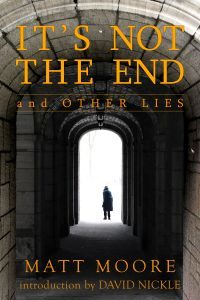 “The Machinery of Government” is one of 21 stories of the bizarre, the terrifying, the all-too-near future you’ll find in It’s Not the End and Other Lies. Get it, along with other titles of horror, dark fantasy, and weird fiction, through the Exclusive Dark Fantasy and SF Bundle. It’s only $15 for 11 ebooks.
“The Machinery of Government” is one of 21 stories of the bizarre, the terrifying, the all-too-near future you’ll find in It’s Not the End and Other Lies. Get it, along with other titles of horror, dark fantasy, and weird fiction, through the Exclusive Dark Fantasy and SF Bundle. It’s only $15 for 11 ebooks.
Get Exclusive Dark Fantasy and SF Bundle on the StoryBundle site
September 3, 2020
My short story collection available for a limited time

Thanks to Douglas Smith, a Toronto-based writer who I admire very much, my short story collection It’s Not the End and Other Lies is available again for a limited time. It contains 21 stories of dark science fiction and horror, including two Aurora Awards finalists and a Sunburst Award longlisted story.
Some amazing horror writers have said some great things about it:
“Subtle power, intelligence, and humanity are the hallmarks of Moore’s work. These stories are apt to stick in your mind like quills. They did in mine.” — Nick Cutter, author of Little Heaven, The Acolyte, and The Troop
“Brilliant. End after end after end, it’s tightly written, thought-provoking and ultimately heart breaking.” — John F.D. Taff, author of Little Black Spots, The End in All Beginnings, and The Bell Witch
“(S)ubtle, unassuming, coaxing you in with the banalities of real life—even if the stories themselves are fantastical—only to claw into your heart and mind…. Moore’s greatest strength is conveying the humanity and the possible to the monstrous and the impossible.” — Paul Michael Anderson, author of Bones are Made to be Broken
Wait, what happened to your book?
In early 2020, I took the rights to my book back after the publisher folded. This put the book out of print.
So it’s available now?
Yes, but only until September 9, 2020. Thanks to Douglas, he had curated a bundle of 11 titles of horror, dark sci-fi, dark fantasy and weird fiction through StoryBundle. StoryBundle is an organization that offers bundles of DRM-free ebooks along commons themes. In this case, the bundle I am in offers 11 titles for $15 (CDN). They are:
Picking Up the Ghost by Tone Milazzo
Wasps at the Speed of Sound by Derryl Murphy
Over the Darkened Landscape by Derryl Murphy
Objects of Worship by Claude Lalumière
The Door to Lost Pages by Claude Lalumière
Tombstone Blues by Chadwick Ginther
Too Far Gone by Chadwick Ginther
Wikiworld by Paul Di Filippo
Bullettime by Nick Mamatas
Chimerascope by Douglas Smith
It’s Not the End and Other Lies by Matt Moore
You can pay more if you want to support the authors, and can opt-in to have some of the price go to benefit Black Lives Matter Canada. It’s really that simple: pay $15 and you get the ebooks.
This bundle is available until September 9, 2020. I’m not sure of the future of my collection, so this might be the last chance to get it.
Other links
How to get this bundle and more information about the other books on the StoryBundle site
Interview I Douglas Smith did with me about It’s Not the End and Other Lies
August 31, 2019
Listen to my interview with Nick Zaino on the Department of Tangents podcast
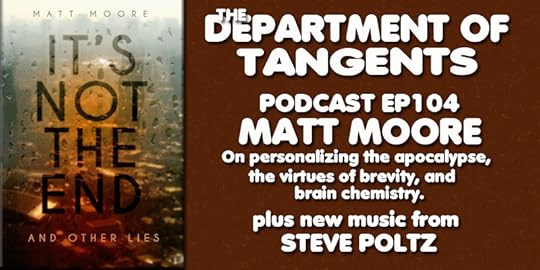
Earlier this summer, I sat down with Nick Zaino at NECON, the Northeastern Writers’ Conference. Nick and I were roommates last year and he grabbed a copy of my (at the time) brand new short story collections It’s Not The End and Other Lies. So we sat to chat for his The Department of Tangents Podcast to talk about writing, horror, and what went into some of the stories in the collection.
If you haven’t read the collection, there’s some few spoilers, but it will give you a good feel for the book if . If you have read it, you’ll learn what went into writing some of these stories and learn how and why I wrote them.
Stick around until the end to hear a song about windows talking to each other. Seriously.
July 11, 2019
I have a story in the relaunch of AE: The Canadian Science Fiction Review
Very happy to finally announce my short story “From One, Many; From Many, One” is one of five original stories published in the relaunch of AE – The Canadian Science Fiction Review. It mixes survivalism, conservationism and fundamentalism in a story about a parent’s love for his child, and how that love might have world-shaking consequences. All in a world that is an apocalypse for some, a utopia for others.
If you don’t know AE, it’s a Canadian online magazine of speculative fiction that pays pro-rates. I’ve had several stories published there, but a few years ago they were hacked and the site taken down. Then, a little over two years ago, head honcho Duff McCourt told me AE was looking to relaunch and asked me for a story. I wrote “From One, Many; From Many, One”, submitted it, and Duff liked it.
But then began a long road to rebuilt AE from the ground up. People’s lives had changed, technology had changed, Canadian spec-fic had changed. It was as if the hack had been the universe saying AE needing to keep up.
They opened to submissions. My story went into the slush pile, one of many that needed to stand on its own.
I was then asked to take on a larger role with AE than just an author. Thus began two years of discussions, reading slush, editing stories, and helping getting the magazine up and running again. Roles changed, ideas were explored and abandoned. It took some time. Longer than any of us wanted. As Dr. Ian Malcolm put it: “Life… er… finds a way.” Be it velociraptors escaping their paddock or family obligations keeping you from the slush pile. But five stories made it through, including mine, which had to earn its place.
And here we are, hopefully for a good long time, standing proudly as both a Canadian voice of speculative fiction and a pro-rate paying market.
I’m proud to be part of this issue, and prouder still to have had the chance to edit two of the other stories in this relaunch issue. You can find AE at aescifi.ca.
I hope you’ll give these stories a read and leave a comment if you feel so inclined. AE specializes in short (
June 17, 2019
Awards news – Aurora and Sunburst Awards!
The summer of 2019 is shaping up to be full of surprises when it comes to awards.
The Aurora Awards
My work with Marie Bilodeau and Nicole Lavigne on the Ottawa Chiaroscuro Reading Series has resulted in us being finalists for the Aurora Award in the Best Fan Organizational category. The Aurora Awards are Canada’s premier fan-voted awards for speculative fiction. This is the sixth time we have been on the ballot, and we have been finalist for each year the Ottawa ChiSeries has been in operation.
My thanks to all of you who nominated us.
2018 (the year for which we are on the ballot) was a hard year for Nicole, Marie and me for reasons I won’t go into here. We only managed to hold two events, each with two (rather than our usual three) authors.
This means a lot. Thank you all.
I’m also glad to see Marie and my good friend Derek Künsken are nominated in the same category for their amazing work with Can-Con, Ottawa’s local speculative fiction convention.
The Aurora Awards will be presented at Can-Con this year, so here’s hoping Ottawa brings home a winner.
The Sunburst Awards
Also, one of the three original short stories in my short fiction collection It’s Not the End and Other Lies is on the longlist for the Sunburst Award in the Short Story Fiction category. The Sunburst Awards are the leading juried awards for Canadian speculative fiction with categories for novels, young adults novels, and short stories.
“Only At The End Do You See What Follows” is a ghost story that explores themes of free will and domestic abuse, and is a very personal story.
This is the second year in a row I have made the Sunburst longlist for short fiction; last year my story “Goodbye is that Time Between Now and Forever,” which appeared in The Sum of Us from Laksa Media, was also on the longlist. (And my good friend Sandra Kasturi won with her story “The Beautiful Gears of Dying” from the same anthology.)
Also in the short fiction category are Ottawa writers Rich Larson and fellow ChiZine Publications author Kate Heartfield, plus friends Madeline Ashby, Dominik Parisien and another fellow ChiZine Publications author Kate Story. Plus, Derek Künsken, Kate Heartfield and Rich Larson are also on the longlist in the novel category.
Great news to start summer 2019!
May 1, 2019
Schedule for Limestone Genre Expo 2019

On Saturday, June 1, I’ll be in Kingston, Ontario at the Limestone Genre Expo. This is a growing convention in beautiful Kingston, Ontario, which is only a few hours from Toronto, Montreal, Ottawa and upstate New York. It’s for fans and creators of fantasy, horror, mystery, romance and science fiction to talk about the literature that they love in a safe, supportive and low-key environment. (What I mean is it’s not ComicCon. It’s a safe place for introverts.)
10AM: The Challenges of World Building
Meeting Room 2
I’m moderating a panel made up of:
Brad Baker
Alyssa Cooper
Nina Munteanu
Una Verdandi
Julie Czerneda
1PM: Cross Genres: How to Mash it Up Without Making a Hash of it!
Meeting Room 2
I’m moderating a panel made up of:
M.H. Callway
Caro Soles
J. M. Tibbot
Janet Kellough
Jenn Burke
2pm: Is it horror?
Meeting Room 3
I’ll be on this panel with:
Julie Czerneda
Bob MacKenzie
Jennifer Carole Lewis (moderator)
4PM: 60 years since The Haunting Of Hill House was published! A celebration of Shirley Jackson
Meeting Room 2
I’ll be on this panel with:
Nancy Kilpatrick
Elizabeth Hirst
Alyssa Cooper (moderator)
I hope to see you there.
March 4, 2019
Upcoming readings & signings in Montreal, Toronto and Peterborough
In March, I’m hitting the road with Derek Künsken and Kate Heartfield to do readings and book signings in Montreal, Toronto and Peterborough! We’ll have copies of our books for sale.
If you want to help spread the word, we’re using the hashtag #OttSpecFicTour on Instagram and Twitter.
Montreal, March 14 @ 7pm
We’ll be at the Argo Bookshop with Amal El-Mohtar. Info on the Argo website: https://www.argobookshop.ca/?q=h.calevents
Toronto, March 20 @ 8pm
We’re at ChiSeries Toronto with Lauren B Davis! Here’s the event on Facebook: https://www.facebook.com/events/2304938816460058/
Peterborough, March 21 @ 7pm
We’re at ChiSeries Peterborough. Here’s the event on Facebook: https://www.facebook.com/events/328366951345244/
Hope you can make it out to see our small tour as Ottawans seek to conquer central Canada.
 Kate Heartfield’s first novel is the historical fantasy Armed in Her Fashion (CZP 2018). Her two time-travel novellas from Tor.com Publishing begin with Alice Payne Arrives in November 2018. Her game, The Road to Canterbury, was published in 2018 by Choice of Games. A former journalist, Kate lives in Ottawa.
Kate Heartfield’s first novel is the historical fantasy Armed in Her Fashion (CZP 2018). Her two time-travel novellas from Tor.com Publishing begin with Alice Payne Arrives in November 2018. Her game, The Road to Canterbury, was published in 2018 by Choice of Games. A former journalist, Kate lives in Ottawa.
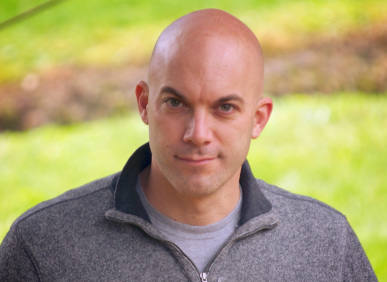
Derek Künsken is a writer of science fiction, fantasy, and sometimes accidentally, horror. He writes and reads both novel-length and short fiction, with a preference for works that explore really strange places and people. Represented by Kim-Mei Kirtland at the Howard Morhaim Agency.



